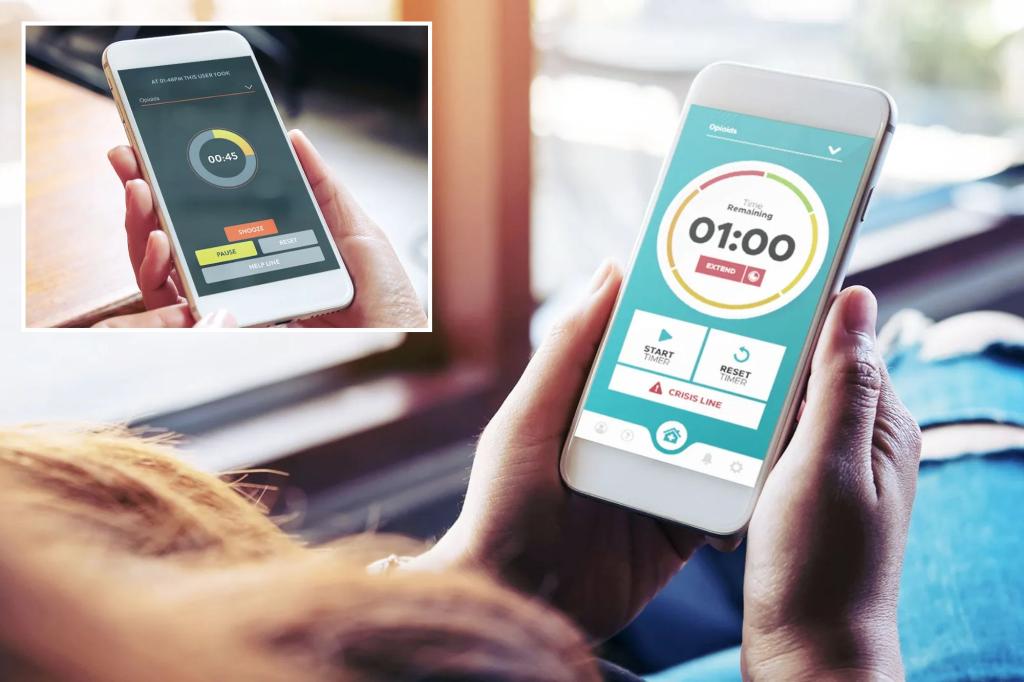Mayor Eric Adams’ administration is preparing to implement “life alert” devices in apartments to assist individuals struggling with substance abuse, a taxpayer-funded initiative that some critics argue may inadvertently promote drug use.
The city’s Health Department is finalizing a contract for a pilot program aimed at residents deemed to be at “high risk” of overdose, as disclosed by officials to The Post.
The contentious contract is set to be awarded to Lifeguard Digital Health, Inc., the manufacturer of Lifeguard Lite—a wall-mounted timer that enables residents to self-monitor their drug usage.
The New York City Department of Health is set to introduce “life alert” devices in residential units to prevent drug-related fatalities, in collaboration with Lifeguard Digital Health.
Before engaging in drug consumption, an individual alone can activate the timer for a maximum of six minutes. Subsequently, residents can choose to extend the timer by one-minute intervals or deactivate it by pressing the “I’m OK” button.
Should the individual fail to respond, Lifeguard Lite emits a loud alarm and notifies building staff to conduct a welfare check on the resident. If there is no acknowledgment following the check, the device automatically dials 911, prompting emergency medical assistance and potential administration of naloxone in the event of an overdose.
Additionally, the device is equipped to monitor room temperature for added safety measures.
Critics, such as Conservative Party chairman Gerard Kassar, argue that city health authorities should focus on assisting individuals in overcoming addiction rather than facilitating drug use through such initiatives.
The Lifeguard Lite devices empower users to set a timer during drug administration, triggering an alert to building staff if left unattended.
Health Department officials defend the initiative, emphasizing that Lifeguard Lite will be piloted with high-risk drug users, given the alarming spike in overdose fatalities, primarily attributed to the misuse of potent fentanyl.
Fentanyl, a synthetic opioid significantly more potent than heroin and morphine, has contributed to a drastic increase in overdose deaths, prompting urgent interventions.
In cases where the alarm remains unanswered post-check, the device directly contacts 911 for prompt intervention. Lifeguard Digital Health
The Department of Health underscores its commitment to saving lives, citing the Administration’s goal to reduce overdose deaths in New York City by 25% by 2030 through innovative strategies like the Lifeguard Lite pilot program.
The successful deployment of Lifeguard Lite in supportive housing units across other jurisdictions has demonstrated its efficacy in preventing overdose fatalities by enabling timely interventions.
The pilot initiative will specifically target residents identified as high-risk for overdoses. Lifeguard Digital Health
Notably, the city currently hosts two “safe” drug injection sites in East Harlem and Washington, where individuals can consume pre-obtained drugs using sterile needles under medical supervision.
The monitoring program, despite its controversy, has been credited with averting over 1,000 overdoses and has garnered support for its expansion from the mayor.
The utilization of the Lifeguard Lite monitoring system extends beyond New York City, with its implementation observed in British Columbia, Canada.
According to LifeGuard Digital Health’s website, when deployed in social housing settings, public restrooms, or safe injection sites, LifeguardLite™ serves as a crucial safety measure for individuals consuming drugs alone, promptly alerting designated administrators during emergencies.
